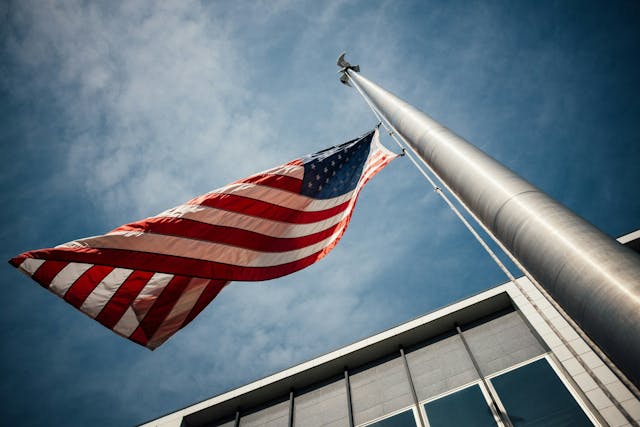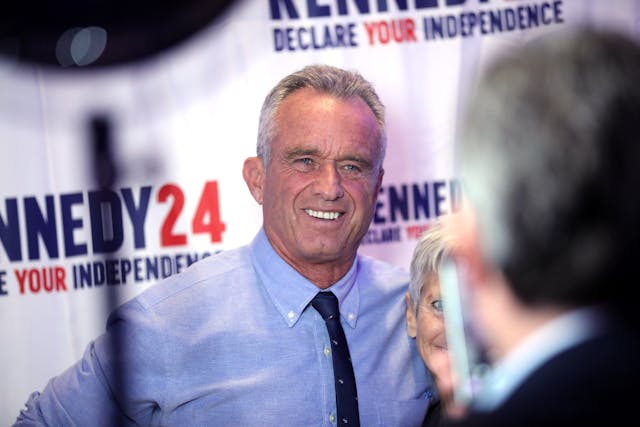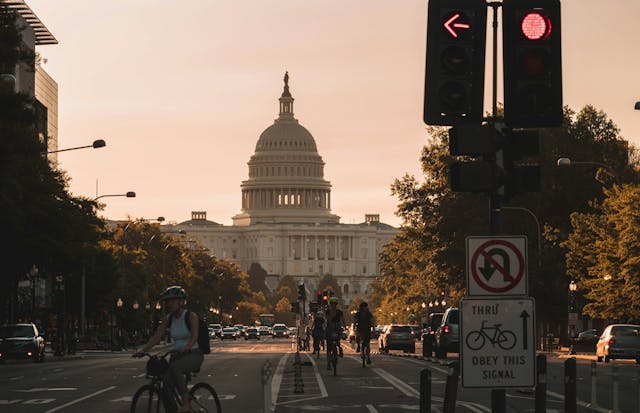Breaking Down the Numbers: Independent Voter Suppression in Pennsylvania
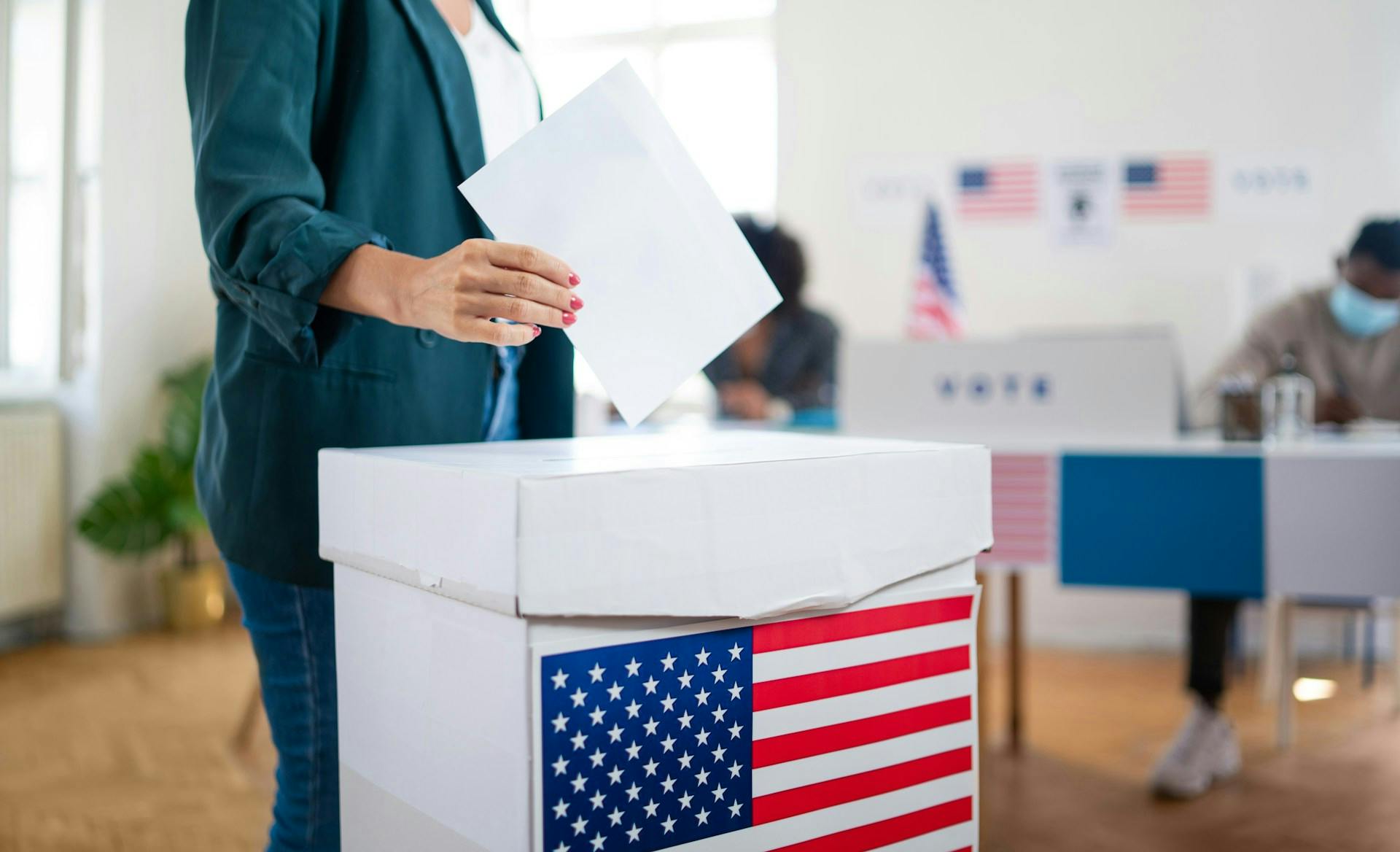
Photo Credit: Getty Images / Unsplash
Pennsylvania held its primary elections Tuesday, which effectively acted as the general election in most cases. However, statewide, over a million voters had to sit on the sidelines because of the state's closed primary rules.
The biggest election of consequence in the primaries was the race for attorney general. The presidential nominations were locked up, and the November ballot for US Senate was already decided due to uncontested primary elections.
As a result, turnout suffered. Roughly 18% of the state's eligible voting population voted -- a figure that could have been higher if a large chunk of the voting population was not shut out of the process.
Pennsylvania is 1 of 10 states with a purely closed primary election system, meaning only Republicans and Democrats can cast a ballot in these taxpayer-funded elections. Independent and third-party voters have to wait.
The closed process has a few consequences:
One, these primaries tend to attract only the most partisan of party loyalists, which results in low turnouts.
Two, most electoral districts are safe for one party or the other, which means the primaries are the most critical stage of the elections process.
And three, because independent voters are told to join a party or don't vote, their rights to associate how they want while being equally protected under the law are violated -- and they have no meaningful say in who represents them.
One Pennsylvania voter said it best when they called it the modern-day version of "taxation without representation." All voters foot the bill for primary elections, but not all voters are treated equally or allowed access to them.
To understand how significant independent voter suppression is in Pennsylvania, Spotlight PA broke down the numbers.
There are 10.3 million eligible voters in Pennsylvania. 7.4 million live in state House districts where the winning candidate is effectively chosen in the primary.
In total, nearly 1.5 million members of both major parties decide the outcome of legislative elections in 86% of primaries held since only 14% of districts are competitive.
In other words, 14.5% of voters decide 86% of elections in Pennsylvania. Meanwhile, more than 1.3 million independent and third-party voters have no say in any of these contests.
The numbers don't look any better when voters look at US House races.
The nonpartisan Unite America Institute, which released an extensive report on independent voter suppression as a result of the primary problem in February, found that just 3% of Pennsylvania voters elected three-quarters of the state's congressional delegation.
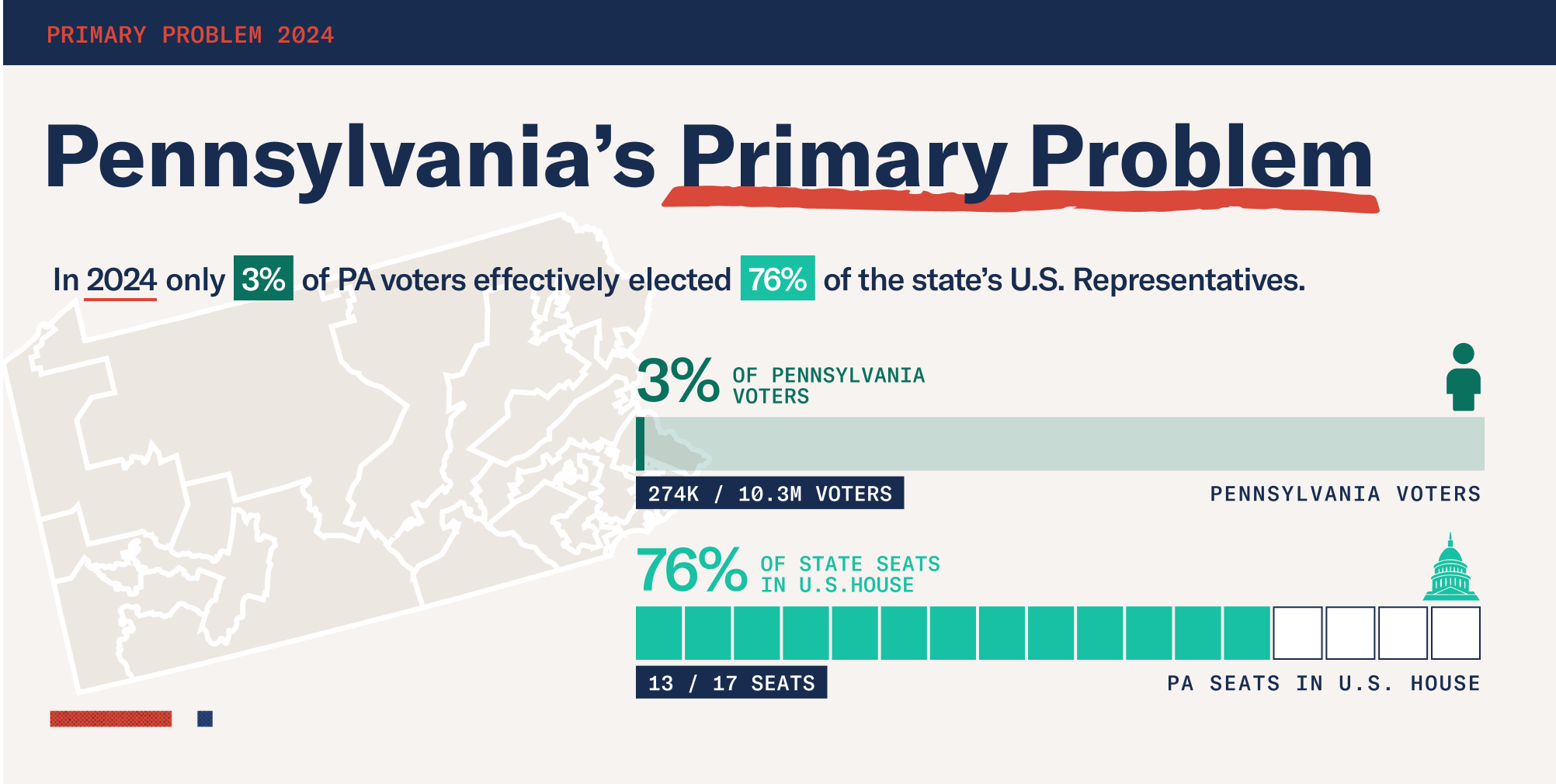
Source: Unite America Institute
It is a similar story at a national level. To date, Unite America has found that a little more than 3% of voters have effectively elected a third of the US House under partisan primary systems -- and the primary season is far from over.
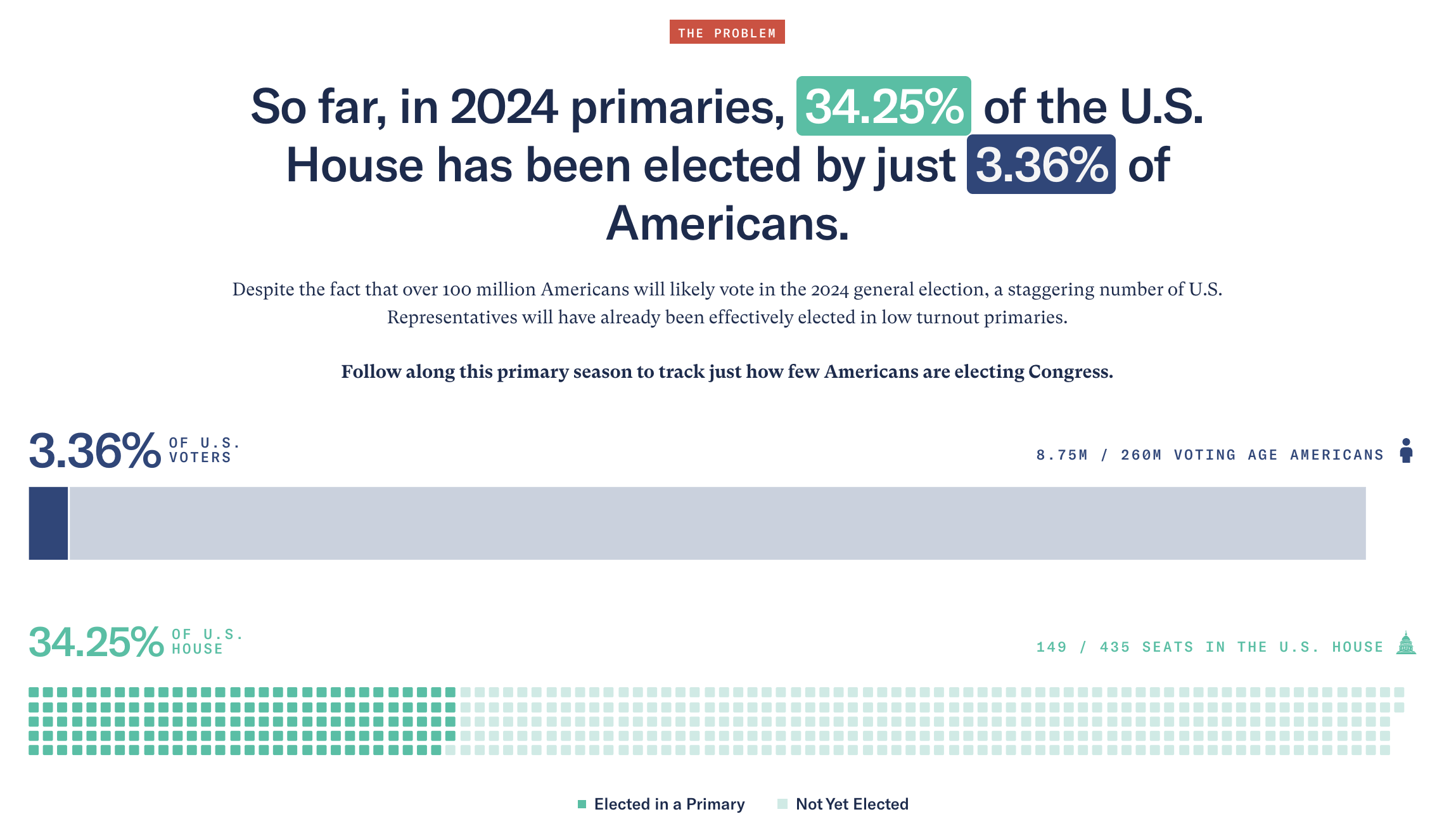
Source: Unite America Institute
Ballot PA, a state-based organization seeking primary reform, reported in a 2022 white paper (updated in 2023) that while independent voter registration in Pennsylvania may not be at the same level as other states, they were the "fastest-growing voter segment" over the last decade.
These voters are largely veterans and young people. Pennsylvania has the fourth-largest veteran population in the US, and research and surveys show that they are more likely to be independent than other US citizens.
If trends continue, independent voters will make up a greater share of Pennsylvania's voter population -- which will mean even more voters disenfranchised in future elections.
People who want to see primary election reform in the state have ramped up their efforts over the last few years. Two bipartisan bills were introduced in the 2023-2024 legislative session.
They cleared one House committee but didn't get a floor vote. David Thornburgh of Ballot PA says he has spoken to Governor Josh Shapiro, who assured him if he and his organization can get a bill to his desk he will sign it.
"Governor Shapiro supported a very similar bill back in 2009," said Thornburgh. "He told me to my face, get it to my desk, I'm supportive. So, let's bring it home."
 Shawn Griffiths
Shawn Griffiths
